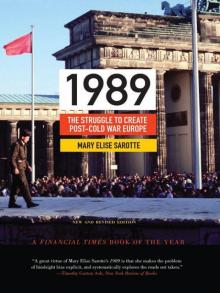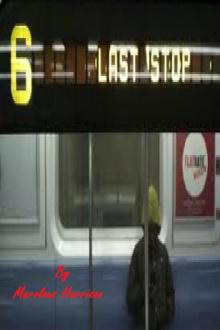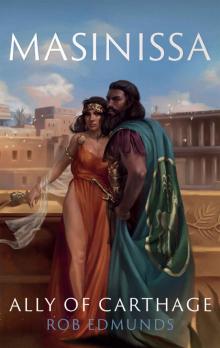1989- The Struggle to Create Post-Cold War Europe


Author: Mary Elise Sarotte
Category: Other2
Published: 2014
Series:
View: 419
Read Online1989 explores the momentous events following the fall of the Berlin Wall and the effects they have had on our world ever since. Based on documents, interviews, and television broadcasts from Washington, London, Paris, Bonn, Berlin, Warsaw, Moscow, and a dozen other locations, 1989 describes how Germany unified, NATO expansion began, and Russia got left on the periphery of the new Europe.This updated edition contains a new afterword with the most recent evidence on the 1990 origins of NATO's post-Cold War expansion.**ReviewA Financial Times Book of the Year Winner of the 2010 Robert H. Ferrell Book Prize Award, Society for Historians of American Foreign Relations Co-Winner of the 2010 Marshall Shulman Book Prize, Association for Slavic, East European, and Eurasian Studies Winner of the 2009 DAAD Prize for Distinguished Scholarship in German and European Studies, awarded by the American Institute for Contemporary German Studies One of Choice's Outstanding Academic Titles for 2010 Sarotte's focus is on Germany. . . . [She] describes a host of competing conceptions of post-cold-war Europe that flourished, mutated and perished in the maelstrom of events that led up to German unity. . . . Two decades later . . . [t]here are still nuclear missiles aimed across the continent. It's hard to imagine that it could have been otherwise--but, Sarotte shows us, it could have been.---Paul Hockenos, *New York Times Book Review* A great virtue of Mary Elise Sarotte's 1989 is that she makes the problem of hindsight bias explicit, and systematically explores the roads not taken.---Timothy Garton Ash, *New York Review of Books* Much the most exciting of these books is Mary Elise Sarotte's 1989. In contrast to the other authors, Sarotte treats the uprisings and collapses of that year as a prelude to the biggest change of all: 'the struggle to create post-Cold War Europe', as her subtitle puts it. . . . Sarottte [is] a lucid and compelling writer.---Neal Ascherson, *London Review of Books* The author embeds her interpretation in a sharp-eyed, fluent narrative of 1989-1990 that sees the realpolitik behind the stirring upheavals. . . . [S]he offers a smart and canny analysis of the birth of our not-so-new world order. (Publishers Weekly) Mary Elise Sarotte's 1989 . . . shows why this post-Cold War world, and not a different one, came out of the dramatic events of 1989, and why the result was bound to pit the U.S. against Russia again in the twenty-first century.---George Packer, *NewYorker.com*From the Back Cover"Mary Sarotte's 1989 reinterprets, in a striking manner, the end of the Cold War in Europe. Based on extensive multiarchival research, it suggests a Bismarckian preeminence for West German chancellor Helmut Kohl in driving the course of events. All students of this subject will henceforth have to grapple with this provocatively persuasive argument."--John Lewis Gaddis, Yale University, author of *The Cold War*"Sarotte makes an essential contribution to the literature on the revolutions of 1989. Her focus is on Europe and Germany, East and West, in the context of the international system. The research is stunning, including new archival sources and revealing interviews with the historical figures involved. Her narrative is fast-paced--like the events themselves--and highly readable. Scholars, students, and the informed public at large will enjoy and learn a lot from this impressive book."--Norman M. Naimark, Stanford University, author of *Fires of Hatred*"The first international history of the diplomacy that produced the miracle of German reunification, this will be the starting point for all research on the international history of reunification from now on."--O. A. Westad, London School of Economics and Political Science, author of *The Global Cold War*"Challenging conventional wisdom, Mary Sarotte questions why the West opted to extend existing Euro-Atlantic structures east in the wake of German unification, instead of creating a new system that would have included Moscow. Based on new archival material and extensive interviews with participants in these events, she argues convincingly that the United States and its partners missed a one-time opportunity to devise a post-Cold War architecture that would have made Europe more secure."--Angela Stent, Georgetown University, author of *Russia and Germany Reborn*
"Sarotte has written a major book about one of the most important events at the end of the Cold War--the international negotiations which culminated in the unification of Germany. Notably, she has managed to get access to primary sources that would be the dream of any historian. She vividly describes the efforts of powerful individuals to create order out of fast-moving and chaotic circumstances. This is a terrific book."--A. James McAdams, University of Notre Dame, author of *Germany Divided*
"Sarotte has written a major book about one of the most important events at the end of the Cold War--the international negotiations which culminated in the unification of Germany. Notably, she has managed to get access to primary sources that would be the dream of any historian. She vividly describes the efforts of powerful individuals to create order out of fast-moving and chaotic circumstances. This is a terrific book."--A. James McAdams, University of Notre Dame, author of *Germany Divided*
 A TREACHEROUS TART
A TREACHEROUS TART The Day of the Bees
The Day of the Bees Take Me (Crimson Pack Trilogy Book 1)
Take Me (Crimson Pack Trilogy Book 1) Last Stop
Last Stop Falling For The Single Dad Surgeon (A Summer In São Paulo Book 2)
Falling For The Single Dad Surgeon (A Summer In São Paulo Book 2) SkyWake Invasion
SkyWake Invasion Ally of Carthage
Ally of Carthage San Francisco Longing: San Francisco Trilogy: Part One
San Francisco Longing: San Francisco Trilogy: Part One